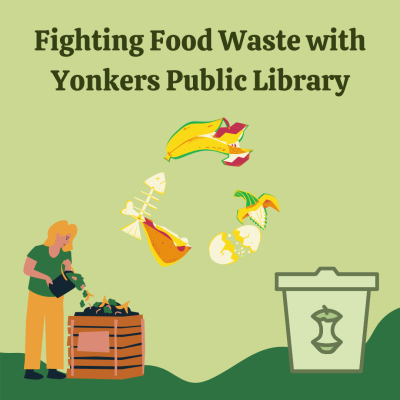
For those familiar with “The New Sustainable You” program, you’ll already be familiar with the topic of food waste in our daily lives. We’ve talked about this before, but now it is more urgent given the recent rise in global temperatures.
For those of you familiar with my program The New Sustainable You, it will come as no surprise that the latest topic is how to fight food waste in our daily lives. We’ve talked about this before, but now it is more urgent given the recent rise in global temperatures.
Food waste happens for a variety of reasons, but much of it occurs during processing. It can be damaged during transportation, retailers over-order or throw out blemished and “ugly” products, and consumers can buy or cook more than they need and end up throwing out the extra.
When food decomposes, it releases methane and other greenhouse gasses into the atmosphere. When food waste ends up in a compost pile, it is better for the environment in the long-term. If food is composted it can ferment and break down naturally and create compost to feed future plants.
Experiments have found that the greenhouse gasses released fluctuate depending on the temperature and the amount of moisture in the compost pile. And while composting still produces greenhouse gasses in the initial stages of decomposition, it decreases over time. When food ends up in landfills, there are no special treatments to help decomposition, and it continues to release significant amounts of methane and other gasses into the atmosphere.
By keeping food out of landfills and on your kitchen table, you can help the environment and save money in your budget. Some studies have shown that at least 30% of edible food in our pantries and refrigerators never gets consumed.
Now you might ask yourself, what can one person do? While it may feel difficult, one person making a change can bring many people together to make a big difference. Managing your food consumption means taking charge of what you purchase, cook, eat and compost.
Consider this example. You have two bananas. Instead of throwing those banana peels away, use the peels to enrich the water you use for your indoor and outdoor plants and toss them in the compost bin afterwards. Or what about when you forget to eat your bananas after they get too ripe? Consider baking some banana bread or muffins, or put them in the freezer to add a frosty, tasty boost to a smoothie! The last place your food should go is the garbage can.
Join us on Zoom for The New Sustainable You! Fighting Food Waste on August 9th at 1:00 PM. Learn how to use those kitchen leftovers to make banana and berry fruit smoothies and more., and learn about other sustainable life practices and how to reduce food waste.
Sources of information:
- Scientific Reports “Assessing the climate change mitigation potential from food waste composting” Tibisay Perez, Sintana E. Vergara & Whendee L. Silver (2003) https://doi/10.1038/s41598-023-34174-z
- Vermont Journal of Environmental Law, Vol. 18. “Heat up those leftovers, not the planet: How combatting food waste can affect climate change.” Bonnie L. Smith (2017) pg. 648-665.
When Jacqueline Leone isn’t suggesting safe and clean DIY solutions that won’t hurt the Earth, she’s busy as a Librarian Trainee at Crestwood Library.
Alison Robles is a part-time page at the Crestwood Library. She is an avid reader with a passion for YA lit, historical fiction and fantasy. A Yonkers native, she graduated from Iona University in 2020 with a dual-degree in Marketing and Public Relations. She is pursuing a Masters in Information and Library Science from the University at Buffalo.